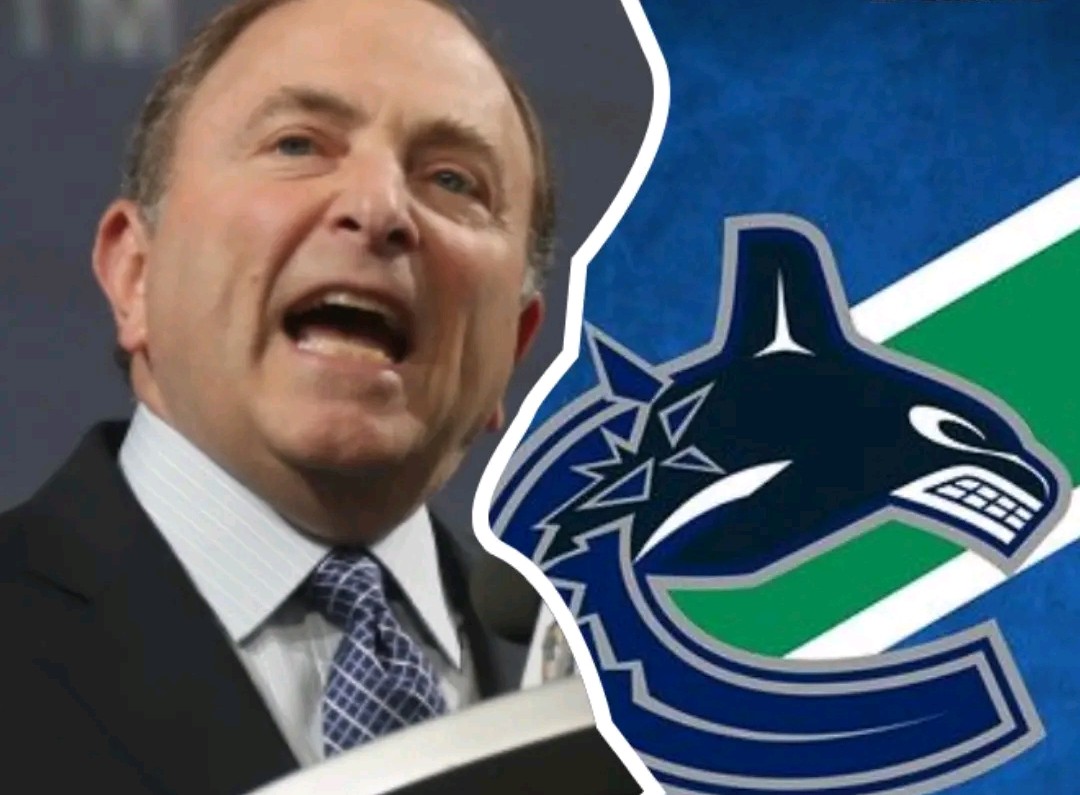“𝑻𝑯𝑬𝒀 𝑫𝑰𝑫 𝑼𝑺 𝑵𝑶 𝑭𝑨𝑽𝑶𝑼𝑹𝑺…”: NHL Schedule Delivers Brutal Blow to Canucks to Open 2025-26 Season—Vancouver Faces Uphill Battle from Day One
The Vancouver Canucks have barely had time to enjoy their offseason before receiving what many are calling a major setback—courtesy of the National Hockey League itself. With the full 2025-26 schedule released earlier today, Vancouver was met not with anticipation, but with frustration, after discovering the league handed them a travel-heavy, early-season grind that could leave the team limping into November.
For the second consecutive year, the Canucks will kick off their regular season at Rogers Arena, facing off against provincial rival Calgary Flames on October 9. While a home opener against a rival provides some excitement, what follows quickly drains that optimism.
After just one game at home, the Canucks will hit the road for a grueling early-season tour. Their second game sends them to Edmonton to face the high-powered Oilers. Then, in a bizarre bit of scheduling, they’ll briefly return home to play the St. Louis Blues in a rare Thanksgiving matinee, before immediately heading back out on an exhausting five-game road trip across the continent.
That stretch includes stops in Dallas, Chicago, Washington, Pittsburgh, and Nashville—all in under two weeks. The Washington game, perhaps most frustratingly, is scheduled for 9:30 a.m. Pacific Time, a brutal ask for any west coast team adjusting to an eastern time zone.
In total, six of Vancouver’s first eight games will be played away from home, with significant travel miles adding to the fatigue factor. It’s a disadvantage that’s drawing criticism from fans, analysts, and even those within the Canucks organization.
Daily Hive’s Rob Williams didn’t mince words, posting to X (formerly Twitter):
> “#Canucks regular season schedule is here.
6 of their first 8 games are on the road.”
That fact alone is enough to make eyebrows raise, especially when considering the toll these early road trips can take on a team’s rhythm, chemistry, and momentum.
After enduring that rough stretch, Adam Foote’s squad will finally enjoy a brief breather: a three-game homestand. That mini-run includes matchups against the Montreal Canadiens on October 25, another clash with the Oilers on October 26, and perhaps the most emotionally charged game of the month—a reunion with former fan favorite J.T. Miller, now playing for the New York Rangers, on October 28. It’ll be Miller’s first game back in Vancouver since his trade and will undoubtedly be circled on every fan’s calendar.
But even that homestand offers little in the way of long-term relief.
The Canucks’ full season reveals five separate road trips of four games or more. These extended trips include multiple back-to-backs and long hauls through different time zones, making fatigue management a key storyline throughout the year.
There is, however, some good news hidden in the grind: Vancouver will enjoy two sizable eight-game homestands, one coming in January and the other in March. These stretches should offer the Canucks some much-needed consistency and a chance to rack up points in front of their home crowd. For a team built around stars like Elias Pettersson, Quinn Hughes, and Thatcher Demko, extended time at home could be the difference between a playoff push and an early summer vacation.
Yet even those silver linings come with complications.
Because of the NHL’s mid-season Olympic break—scheduled to allow players to represent their countries in international competition—Vancouver will only play four games during the month of February. Even worse, only one of those will be played at home, a February 25 showdown with the Winnipeg Jets.
This fragmented schedule means the Canucks may struggle to maintain consistency, both physically and mentally. Extended breaks followed by condensed stretches of road games are not ideal for building momentum in the dog days of a season.
As for the final chapter of the campaign, April will be another uphill battle. Vancouver is set to play nine games in the regular season’s closing month, six of which will be on the road. Their final home game will come on April 14 against the Los Angeles Kings, before wrapping up the regular season away from the comforts of Rogers Arena.
It’s not just the volume of road games that’s troubling, but the timing and spacing of them. The Canucks will be pushed to their physical limits early, then asked to ramp up again after the Olympic break, and finally sprint to the finish with another burst of travel.
From a strategic standpoint, this schedule presents enormous challenges for head coach Adam Foote and general manager Patrik Allvin. Rotating the lineup, managing rest days, and keeping players healthy will be essential—not optional. It will also put added pressure on the team’s depth, as the physical wear and tear will likely force younger players into larger roles earlier than expected.
The NHL’s schedule release always sparks excitement, but for Vancouver, this year’s unveiling has raised more concerns than celebrations. While every team must endure ups and downs throughout the 82-game grind, the early disadvantage given to the Canucks could have serious implications—not just in terms of wins and losses, but also for team morale.
After a promising 2024-25 campaign that saw glimpses of greatness, fans hoped this year might be the one where Vancouver finally makes a serious push for postseason relevance. That dream is still alive—but the path to achieving it just got significantly harder.
Whether the Canucks can overcome the NHL’s scheduling curveball remains to be seen. But one thing’s clear: the opening weeks of the 2025-26 season will test this team’s resolve like never before.



